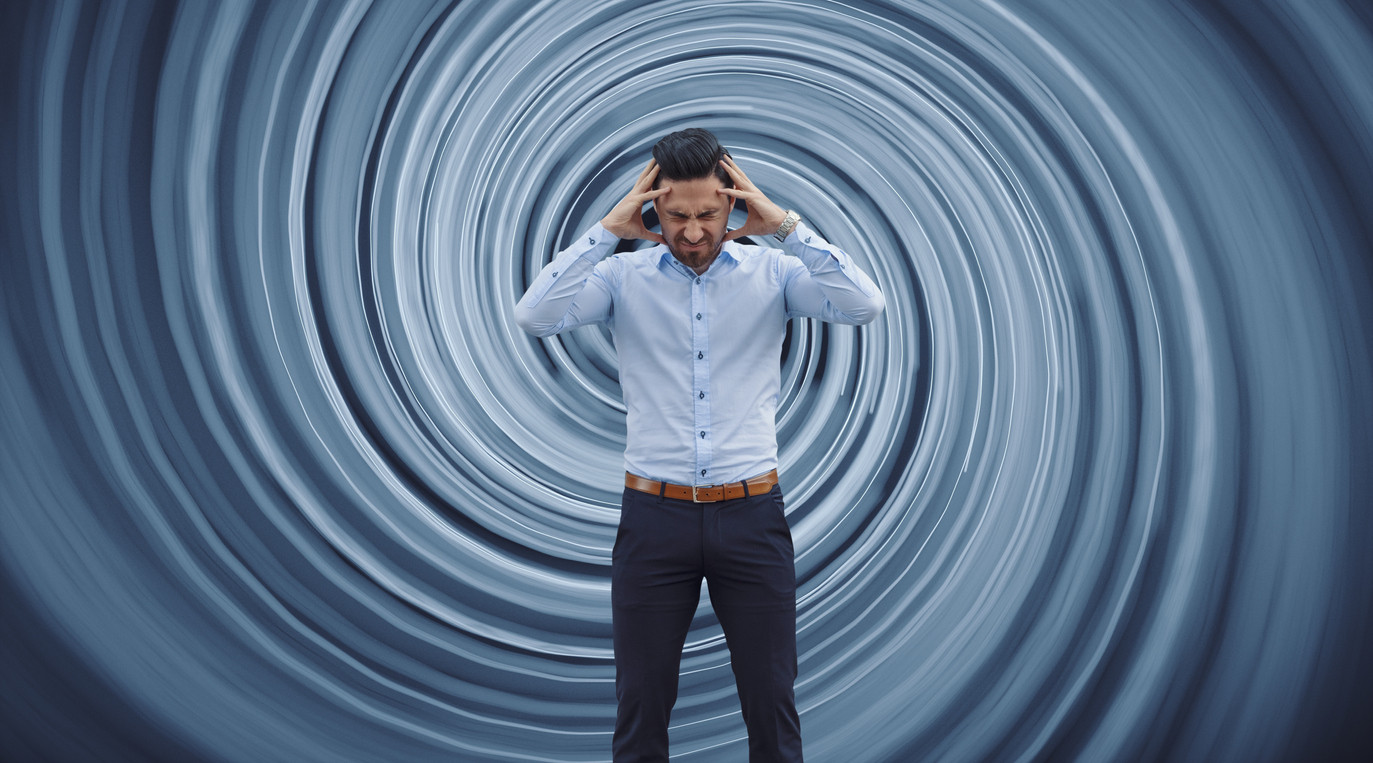Definisi
Labirinitis adalah infeksi atau peradangan pada organ labirin di dalam telinga. Organ labirin terletak di telinga dalam dan berfungsi dalam sistem pendengaran serta keseimbangan. Organ labirin berhubungan dengan saraf pendengaran atau saraf vestibular yang mengirimkan informasi suara dan kontrol keseimbangan ke otak. Labirinitis dapat mengganggu aktivitas sehari-hari seperti mengemudi, bekerja, dan aktivitas lainnya.
Kebanyakan labirinitis dialami oleh orang dewasa berusia 30-60 tahun, dan sangat jarang dialami oleh anak-anak. Labirinitis jarang menyebabkan gejala yang mengancam nyawa, kecuali apabila infeksi menjalar hingga ke otak dan menyebabkan meningitis.
Penyebab
Labirinitis dapat terjadi pada semua usia. Berbagai faktor dapat menyebabkan labirinitis antara lain:
- Penyakit pernapasan, seperti bronkitis
- Infeksi saluran pernafasan atas seperti flu
- Infeksi virus pada telinga bagian dalam
- Virus herpes
- Infeksi bakteri pada tulang-tulang pendengaran di telinga dalam yang menjalar ke organ labirin
- Infeksi bakteri dari telinga tengah yang menjalar ke telinga dalam
- Kuman menular, seperti yang menyebabkan penyakit Lyme
Labirinitis karena virus lebih sering terjadi dibandingkan karena bakteri. Labirinitis viral biasanya terjadi pada satu telinga dan gejalanya lebih cepat hilang, namun dapat kambuh lagi secara tiba-tiba. Sementara pada labirinitis bakterial, dapat terjadi infeksi berat dan langka jika bakteri berasal dari luar telinga.
Risiko labirinitis meningkat jika:
- Merokok
- Minum alkohol dalam jumlah besar
- Riwayat alergi
- Kelelahan dalam jangka panjang
- Kondisi stres berlebihan
- Konsumsi obat-obatan tertentu
- Konsumsi obat bebas (terutama aspirin)
Faktor Risiko
Labirinitis dapat mengenai siapapun, namun beberapa kondisi berikut dapat meningkatkan risikonya, yaitu:
- Infeksi saluran pernapasan atas, seperti pilek dan flu
- Infeksi telinga tengah
- Meningitis atau radang selaput otak
- Cedera kepala
- Penyakit pernapasan, seperti bronkitis
- Infeksi virus, termasuk herpes dan campak
- Kondisi autoimun
Faktor lain yang dapat meningkatkan risiko labirinitis, termasuk:
- Merokok
- Konsumsi alkohol berat
- Riwayat alergi
- Stres
- Penggunaan obat-obatan tertentu
Gejala
Gejala labirinitis biasanya muncul tiba-tiba dan menetap beberapa hari. Selanjutnya, gejala akan menghilang perlahan, namun dapat timbul kembali saat Anda menggerakkan kepala secara tiba-tiba. Labirinitis biasanya tidak menimbulkan rasa sakit.
Gejala labirinitis meliputi:
- Pusing atau merasa seperti melayang
- Vertigo atau pusing berputar
- Kehilangan keseimbangan
- Mual dan muntah
- Tinnitus, yaitu telinga berdenging atau berdengung
- Kehilangan pendengaran, terutama pada suara berfrekuensi tinggi di satu telinga
- Kesulitan memfokuskan mata
Pada kasus yang sangat jarang, komplikasi dapat berupa gangguan pendengaran yang permanen.
Diagnosis
Dokter biasanya sudah dapat mendiagnosis labirinitis dari gejala dan pemeriksaan fisik. Namun pada beberapa kasus, labirinitis belum dapat terlihat jelas pada pemeriksaan telinga, sehingga diperlukan pemeriksaan fisik lengkap, termasuk pemeriksaan saraf.
Gejala labirinitis dapat menyerupai gejala penyakit lain. Dokter dapat merekomendasikan tes berikut untuk menyingkirkan penyebab lain. Penyakit lain yang dapat menyerupai gejala labirinitis meliputi:
- Penyakit Meniere, juga merupakan gangguan telinga bagian dalam
- Migrain
- Stroke
- Pendarahan otak
- Kerusakan arteri leher
- Vertigo posisional paroksismal jinak, merupakan gangguan telinga bagian dalam
- Tumor otak
Tes untuk menyingkirkan penyakit lain tersebut meliputi:
- Tes pendengaran
- Tes darah
- CT scan atau MRI kepala untuk merekam struktur tengkorak
- Electroencephalogram (EEG), merupakan tes gelombang otak
- Electronystagmography (ENG), merupakan tes gerakan mata
Tata Laksana
Gejala labirinitis dapat diredakan dengan obat-obatan berikut:
- Obat golongan antihistamin yang harus dengan resep, seperti desloratadine
- Obat yang dapat mengurangi pusing dan mual, seperti meclizine
- Obat penenang, seperti diazepam
- Kortikosteroid, seperti prednison
- Antihistamin yang dijual bebas, seperti fexofenadine, diphenhydramine, atau loratadine
- Jika Anda memiliki infeksi aktif, dokter dapat meresepkan antibiotik.
Selain minum obat, ada beberapa langkah yang bisa Anda gunakan untuk meredakan vertigo:
- Hindari perubahan posisi yang cepat atau gerakan yang tiba-tiba
- Duduk diam selama serangan vertigo muncul
- Bangun perlahan dari posisi berbaring atau duduk
- Hindari melihat televisi, layar komputer, dan lampu terang atau kerlap-kerlip selama serangan vertigo
- Jika vertigo terjadi saat Anda berada di tempat tidur, cobalah duduk di kursi dan jaga agar kepala tetap diam. Kondisikan pencahayaan yang tidak terlalu gelap dan tidak terlalu terang
Jika vertigo berlanjut untuk waktu yang lama, terapis fisik dan okupasi dapat mengajari Anda latihan untuk membantu meningkatkan keseimbangan.
Vertigo dapat mengganggu aktivitas sehari-hari seperti mengoperasikan mobil atau mesin lain dengan aman. Anda harus beristirahat dahulu sampai kondisi Anda sudah aman untuk mengemudi lagi.
Komplikasi
Pada kebanyakan kasus, gejala akan hilang dalam satu hingga tiga minggu, dan akan pulih total dalam beberapa bulan. Sementara, gejala seperti vertigo dan muntah dapat mengganggu aktivitas seperti bekerja, mengemudi, atau olahraga. Cobalah untuk kembali melakukan aktivitas secara perlahan saat Anda telah kembali pulih.
Jika gejala belum membaik setelah beberapa bulan, dokter akan merekomendasikan pemeriksaan tambahan untuk menyingkirkan kondisi lain jika diperlukan.
Sebagian besar orang hanya mengalami satu episode labirinitis dan jarang menjadi kondisi yang kronis atau jangka panjang.
Pencegahan
Sampai saat ini belum ada cara pasti untuk mencegah labirinitis. Pada beberapa kasus, labirinitis umumnya dapat membaik dengan sendirinya. Namun, ada beberapa langkah yang dapat dilakukan untuk meredakan gejalanya.
Karena labirinitis sering disebabkan oleh penyakit lain, Anda dapat mengurangi risikonya melalui:
- Berbaring diam di ruangan gelap jika Anda merasa sangat pusing
- Fokus pada objek yang diam dibandingkan melihat-lihat sekeliling sepanjang waktu
- Jangan mengemudi, bersepeda, atau menggunakan alat/mesin jika Anda merasa pusing
- Minum air yang cukup dengan perlahan
- Menghindari kebisingan dan lampu terang
- Cukup tidur, kelelahan dapat memperburuk gejala
- Mulai latihan berjalan perlahan segera setelah pulih dengan dengan dibantu orang lain untuk menenangkan diri hingga Anda cukup kuat untuk melakukannya sendiri
- Mencuci tangan secara teratur dan mencoba menghindari kuman selama musim dingin dan flu yang dapat menyebabkan infeksi telinga
- Mendapatkan vaksinasi campak, gondok, atau rubella yang dapat mencegah infeksi
- Tidak minum alkohol atau merokok karena akan memberat gejala
- Labirinitis seringkali merupakan akibat dari infeksi lain, seperti otitis media (infeksi telinga tengah) atau meningitis (infeksi selaput otak). Oleh karena itu, diagnosis dini dan penanganan yang tepat dapat mencegah perkembangan labirinitis atau setidaknya meminimalkan risiko komplikasi jangka panjang
Kapan Harus ke Dokter?
Jika Anda memiliki gejala labirinitis, konsultasi dengan dokter untuk menentukan penyebabnya dan memastikan diagnosis Anda. Karena gejala tertentu bisa menjadi tanda dari kondisi lain yang lebih serius.
Segera konsultasi dengan dokter jika:
- Gejala labirinitis tidak membaik setelah beberapa hari
- Gejala labirintitis semakin parah
Gejala Anda termasuk darurat dan harus segera mencari pertolongan medis darurat jika:
- Pingsan
- Kejang
- Bicara tidak jelas
- Demam
- Kelemahan anggota gerak
- Kelumpuhan
- Penglihatan ganda
Mau tahu informasi seputar penyakit lainnya, cek di sini ya!
- dr Anita Larasati Priyono
Pietrangelo A. (2019). Labyrinthitis. Retrieved 10 March 2022, from https://www.healthline.com/health/labyrinthitis
What is labyrinthitis?. (2020). Retrieved 10 March 2022, from https://www.webmd.com/brain/what-is-labyrinthitis
Boston ME. (2020). Labyrinthitis. Retrieved 10 March 2022, from https://emedicine.medscape.com/article/856215-overview
Barkwill D, Arora R. (2021). Labyrinthitis. StatPearls Publishing. Retrieved 10 March 2022, from https://www.ncbi.nlm.nih.gov/books/NBK560506/
Eske J. (2018). What is labyrinthitis?. Retrieved 10 March 2022, from https://www.medicalnewstoday.com/articles/323606











